No easy road for U.S. nuclear new build
Getting the NRC license is just the first step

A message from Goodway Technologies
Optimizing Maintenance Strategies in Power Generation: Embracing Predictive and Preventive Approaches
Getting the NRC license is just the first step
The U.S. Nuclear Regulatory Commission on March 30 voted to clear the way for its Office of New Reactors to issue two licenses for two new AP1000 reactors at the V.C. Summer site in Parr, S.C. This marks the NRC's second approval of nuclear units to be built in the United States in two months. In February, the NRC approved a license for Atlanta-based Southern Company's Vogtle project, in Waynesboro, Ga. The NRC had not issued any new reactor licenses since 1978.
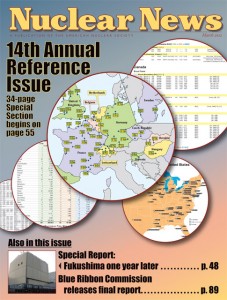 The March "reference" issue of Nuclear News magazine is available in hard copy and electronically for American Nuclear Society members (must enter ANS user name and password in Member Center). This issue-the 14th annual nuclear reference guide-includes:
The March "reference" issue of Nuclear News magazine is available in hard copy and electronically for American Nuclear Society members (must enter ANS user name and password in Member Center). This issue-the 14th annual nuclear reference guide-includes:
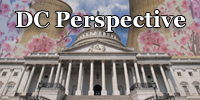 After giving a brief update on recent Fukushima-related events in the United States, I'd like to talk about some good (but relatively unpublicized) things that have happened during what has otherwise been a very challenging year for the nuclear industry. Then I'll discuss what, to me, was the most disconcerting story in the past year.
After giving a brief update on recent Fukushima-related events in the United States, I'd like to talk about some good (but relatively unpublicized) things that have happened during what has otherwise been a very challenging year for the nuclear industry. Then I'll discuss what, to me, was the most disconcerting story in the past year.
The plant dodges another bullet at least for now
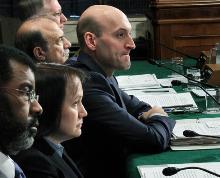
NRC Commissioners Magwood, Svinicki, Chairman Jaczko, Apostolakis, Ostendorff
A hearing titled "Lessons from Fukushima One Year Later: NRC's Implementation of Recommendations for Enhancing Nuclear Reactor Safety in the 21st Century" will be held in the U.S. Senate this morning at 10:00 AM EDT. Witnesses will include NRC chairman Gregory Jaczko and fellow NRC commissioners Kristine Svinicki, George Apostolakis, William Magwood, and William Ostendorff.
A hearing titled "Lessons from Fukushima One Year Later: NRC's Implementation of Recommendations for Enhancing Nuclear Reactor Safety in the 21st Century" will be held in the U.S. Senate on Thursday, March 15, at 10:00 AM EDT. The hearing will be a joint session of the Senate's Committee on Environment and Public Works and the Subcommittee on Clean Air and Nuclear Safety.
The American Nuclear Society Special Committee on Fukushima will issue its full report on March 8 at the National Press Club in Washington, DC, at 10AM EST. The press conference will be available for viewing via this link.
Steven A. Arndt, Ph.D., P.E., cited as best engineer in federal service
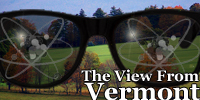 On January 19, the Federal District Court in Brattleboro, Vt., issued a court decision in favor of Entergy Corporation, regarding the continued operation of its Vermont Yankee nuclear power plant. Entergy had sued the State of Vermont on several issues, but mainly on Act 160, a Vermont law that was crafted to block the continued operation of the plant. The plant needs a Certificate of Public Good (CPG) from the state in order to keep operating, but Act 160 says that the state's Public Service Board needs legislative approval before it could release its findings on the application for the CPG. Without the new CPG, the plant would have had to shut down when the original one expires, on March 21, 2012. The federal court's decision "permanently enjoined" the state from using Act 160 to deny a CPG to Entergy; the basis for that decision is the supremacy of federal law over state law.
On January 19, the Federal District Court in Brattleboro, Vt., issued a court decision in favor of Entergy Corporation, regarding the continued operation of its Vermont Yankee nuclear power plant. Entergy had sued the State of Vermont on several issues, but mainly on Act 160, a Vermont law that was crafted to block the continued operation of the plant. The plant needs a Certificate of Public Good (CPG) from the state in order to keep operating, but Act 160 says that the state's Public Service Board needs legislative approval before it could release its findings on the application for the CPG. Without the new CPG, the plant would have had to shut down when the original one expires, on March 21, 2012. The federal court's decision "permanently enjoined" the state from using Act 160 to deny a CPG to Entergy; the basis for that decision is the supremacy of federal law over state law.
 Entergy's Vermont Yankee nuclear power plant's operating license would have expired on March 21, 2012, but the Nuclear Regulatory Commission extended the license to 2032. Vermont's legislature and a vocal part of the state's population don't like the idea of Vermont Yankee's continued operation. So, when confronted with an unpopular federal agency's decision, what's a concerned state legislature to do?
Entergy's Vermont Yankee nuclear power plant's operating license would have expired on March 21, 2012, but the Nuclear Regulatory Commission extended the license to 2032. Vermont's legislature and a vocal part of the state's population don't like the idea of Vermont Yankee's continued operation. So, when confronted with an unpopular federal agency's decision, what's a concerned state legislature to do?
By a 4-1 vote, the agency opens the door to $14 billion in new construction of two Westinghouse AP1000 nuclear reactors
Several weeks ago in the quiet community of Gaffney, South Carolina, I attended a public meeting held by the Nuclear Regulatory Commission to discuss the potential environmental impact of Duke Energy's proposed William States Lee III site. About 100 anti-nuclear activists also descended on the meeting.
 Soon after declaring that it would end the Yucca Mountain repository project, the Obama administration created the Blue Ribbon Commission on America's Nuclear Future to reevaluate the nation's nuclear waste program and policies. The commission was asked to recommend improvements to the waste program and the Nuclear Waste Policy Act (NWPA), and to make general recommendations on the path forward. The commission was specifically instructed to not address the Yucca Mountain project, or any specific project or site. The commission's final report was released this month.
Soon after declaring that it would end the Yucca Mountain repository project, the Obama administration created the Blue Ribbon Commission on America's Nuclear Future to reevaluate the nation's nuclear waste program and policies. The commission was asked to recommend improvements to the waste program and the Nuclear Waste Policy Act (NWPA), and to make general recommendations on the path forward. The commission was specifically instructed to not address the Yucca Mountain project, or any specific project or site. The commission's final report was released this month.
The utility is assessing options to use it
Federal District Court rules against efforts by the State of Vermont to assert regulatory authority over radiological safety issues
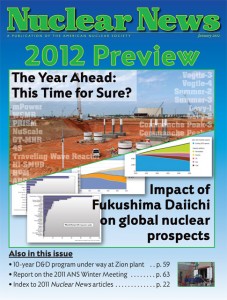 The January issue of Nuclear News magazine is available in hard copy and electronically for American Nuclear Society members (must enter ANS user name and password in Member Center). The issue contains the following stories:
The January issue of Nuclear News magazine is available in hard copy and electronically for American Nuclear Society members (must enter ANS user name and password in Member Center). The issue contains the following stories:
The Nuclear Regulatory Commission voted unanimously on December 22 in favor of publishing the final certification rule for Westinghouse's AP1000 reactor design, instructing the agency's staff to forward the final rule, which amends Appendix D of 10 CFR Part 52, for publication in the Federal Register, expected by January 5.
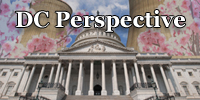 Seems to be the season of controversy in Washington concerning nuclear issues and energy issues in general. First we had the whole Solyndra affair (discussed in my Nov. 28 post), and now we have an unprecedented-and highly politicized situation-concerning the U.S. Nuclear Regulatory Commission.
Seems to be the season of controversy in Washington concerning nuclear issues and energy issues in general. First we had the whole Solyndra affair (discussed in my Nov. 28 post), and now we have an unprecedented-and highly politicized situation-concerning the U.S. Nuclear Regulatory Commission.